Hybrid working has helped improve employee wellbeing, work-life balance, and performance across Canada, according to a new Cisco study. While organizations have benefited from increased employee productivity, more needs to be done to build an inclusive culture and fully embed hybrid work arrangements to boost readiness levels and enhance employee experience.

Cisco’s hybrid study found that half of employees believe that quality of work has improved. A similar number (55%) felt that their productivity has enhanced. Three-quarters of employees (73%) also feel their role can now be performed just as successfully remotely as in the office. However, the survey reveals that only one in five Canadians (20%) think that their company is ‘very prepared’ for a hybrid work future.
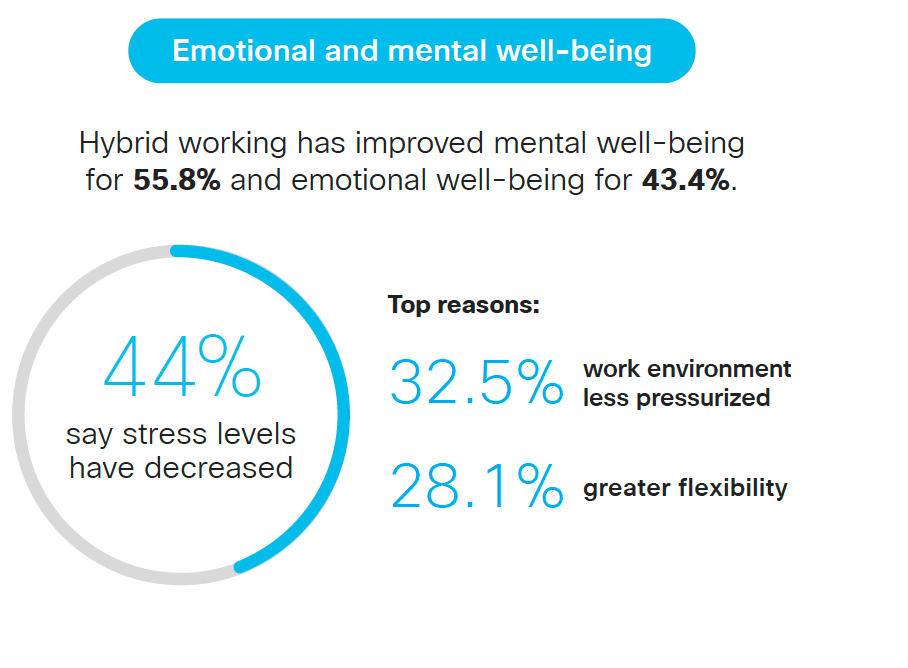
“Hybrid work is here to stay, and for good reason. Employees and organizations see tangible benefits across key indicators – from improved overall employee wellbeing to better productivity and work performance,” said Shannon Leininger, Cisco Canada President. “However, there remains gaps in fully leveraging the opportunities of a hybrid work future, particularly in building an inclusive culture, employee engagement strategies and providing leaders with the tools to successfully lead through this change.”
Cisco’s research examined the impact of hybrid working on five categories of wellbeing – emotional, financial, mental, physical, and social wellbeing – with almost three-quarters of respondents (69%) saying hybrid and remote working has improved various aspects of their wellbeing.
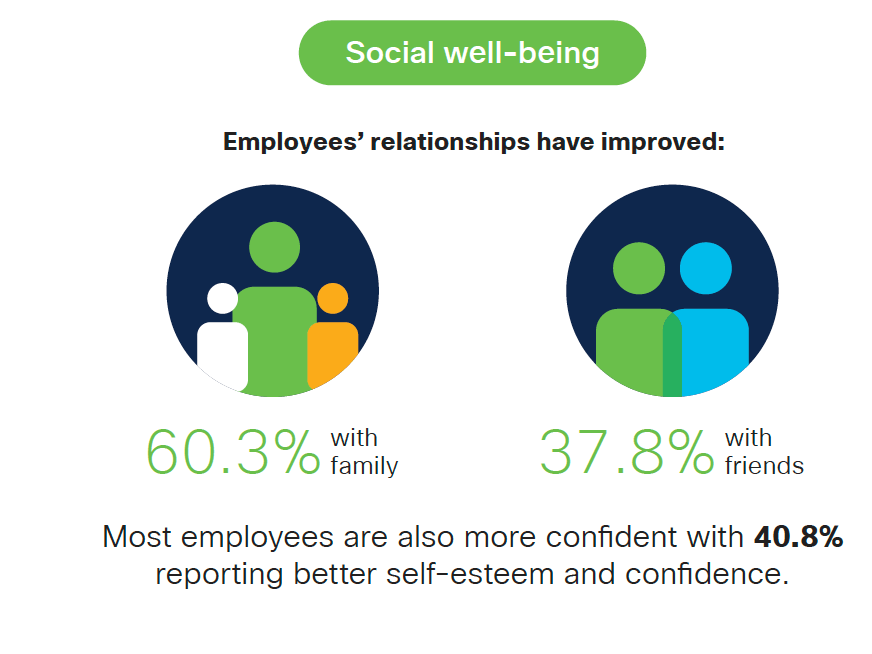
Time away from the office has improved work-life balance for 71% of Canadian employees.with flexible work schedules (57%) and reduced or removed commuting times (60%) contributing to this improvement. Nearly two-thirds (61%) saved at least four hours per week when they worked from home, and 26% saved eight or more hours a week. 44% ranked ‘time with family, friends, and pets’ as the top choice for how they reinvested this extra time. This has enhanced social wellbeing, with a majority (60%) indicating that remote working has improved family relationships.
Financial wellbeing also improved (75%) because respondents could save money while working remotely, with an average annual savings of CAD$11,100. A sizable 92% ranked savings on fuel and/or commuting among their top three areas for savings, followed by decreased spending on food and entertainment at 76%. Close to nine in 10 (84%) believe they can maintain these savings over the long term, and 69% would take these savings into account when considering changing jobs.
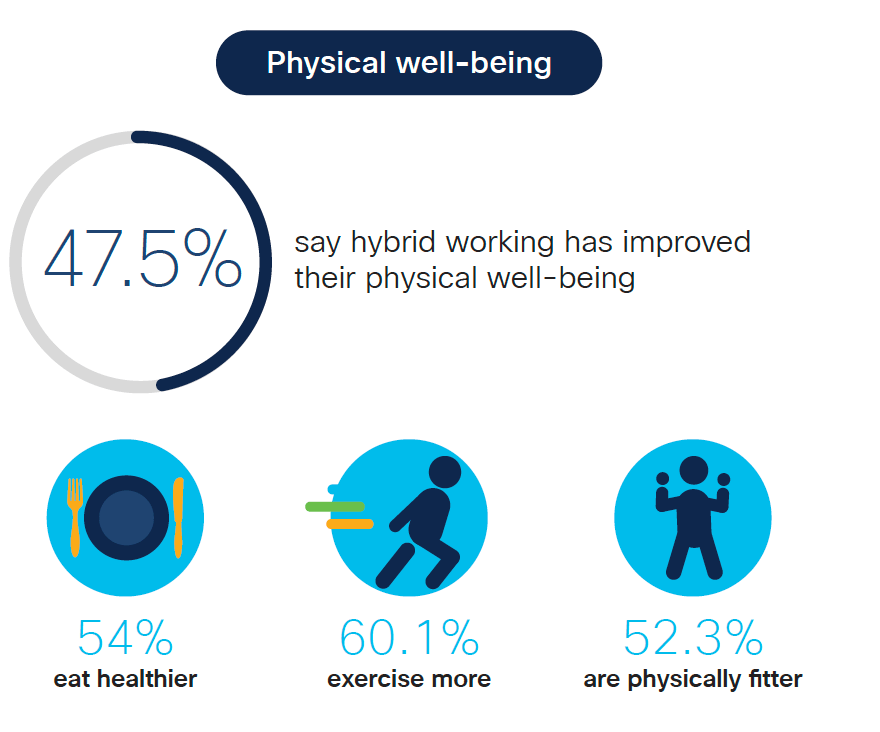
Remote working has also improved physical fitness (52%). A further six in 10 stating they exercise more when they work remotely, with an average increase of 133 additional sessions a year. Just over half (54%) say hybrid working has also positively impacted their eating habits. Given the improvement in various aspects of wellbeing, an overwhelming majority (76%) of employees say the ability to work from anywhere has made them happier. 77% say stress levels have decreased or stayed the same with respondents attributing this to a more relaxing work environment (32%), greater flexibility (28%) and more time to spend on personal relationships (18%).
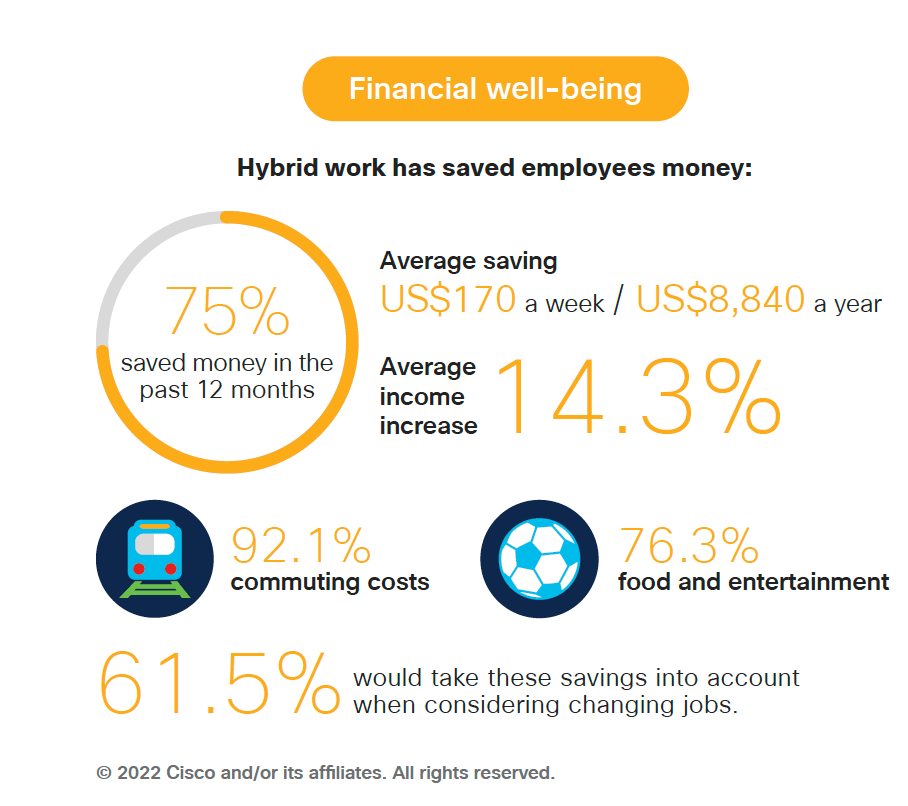
With the evident benefits of hybrid working, the study shows that a majority (55%) want a hybrid work model. A third (35%) want to work fully remote, leaving just 10% who want to go to the office on a full-time basis. However, there is uncertainty over how different work styles might impact inclusion and engagement. Over half of the respondents say that those who work fully remotely will have challenges engaging with their colleagues (57%) and company (52%), compared to those who toggle between remote and in-office work. Furthermore, the research finds that trust will be a critical element for organizations to manage. Three-quarters (76%) of respondents believe their manager trusts them to be productive when working remotely, while a lower number (59%) believe their colleagues can be trusted to work remotely. These findings underscore the need for an inclusive culture to be at the forefront of the hybrid working future. With seven in 10 (72%) saying their company needs to rethink its culture and mindset to make hybrid work truly inclusive. Employees would like to see key changes to support hybrid work including greater flexibility in defining work hours (56%) and greater emphasis on employee wellness and work-life balance (56%).
At the same time, technology will remain critical to enabling a future with increasingly diverse and distributed workforces. Half of respondents believe having connectivity issues regularly is career-limiting for remote workers. As a result, 82% say networking infrastructure is essential for a seamless working from home experience, but only 65% say their company currently has the right networking infrastructure.
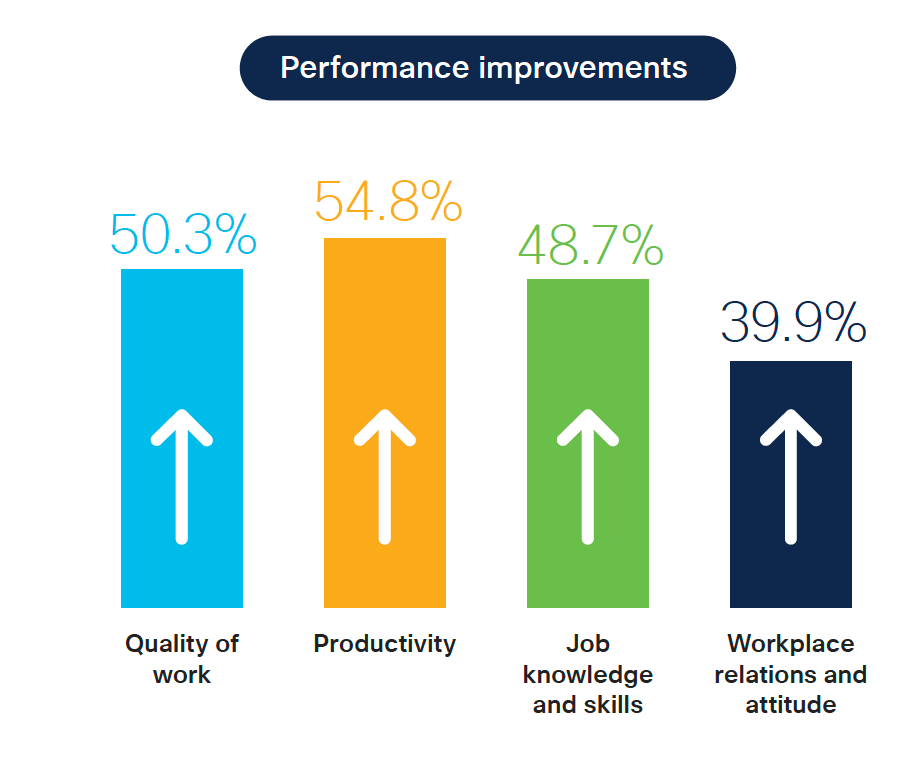
More than three-quarters (79%) also believe that cybersecurity is critical for making hybrid working safe, but less than two-thirds (64%) say their organization currently has the right capabilities and protocols in place. Only 58% think that all employees across their company understand the cyber risks involved with hybrid work, and 66% think business leaders are familiar with the risks.
The study was commissioned by Cisco and conducted byDynata, with the researchbased on participation from 28,000 full-time employees from 27 countries, touching every continent other than Antarctica. The study was conducted between January and March 2022. Cisco is a worldwide leader in technology that powers the Internet.









